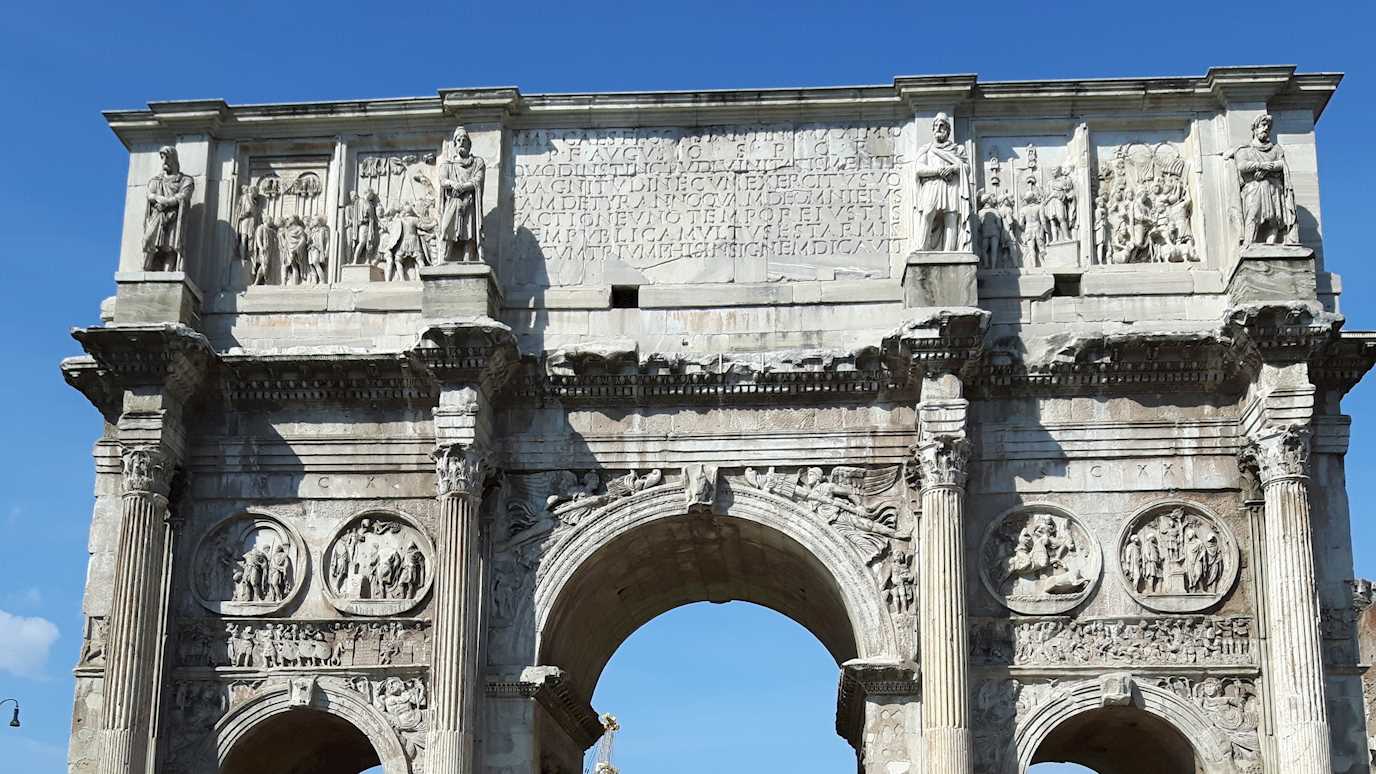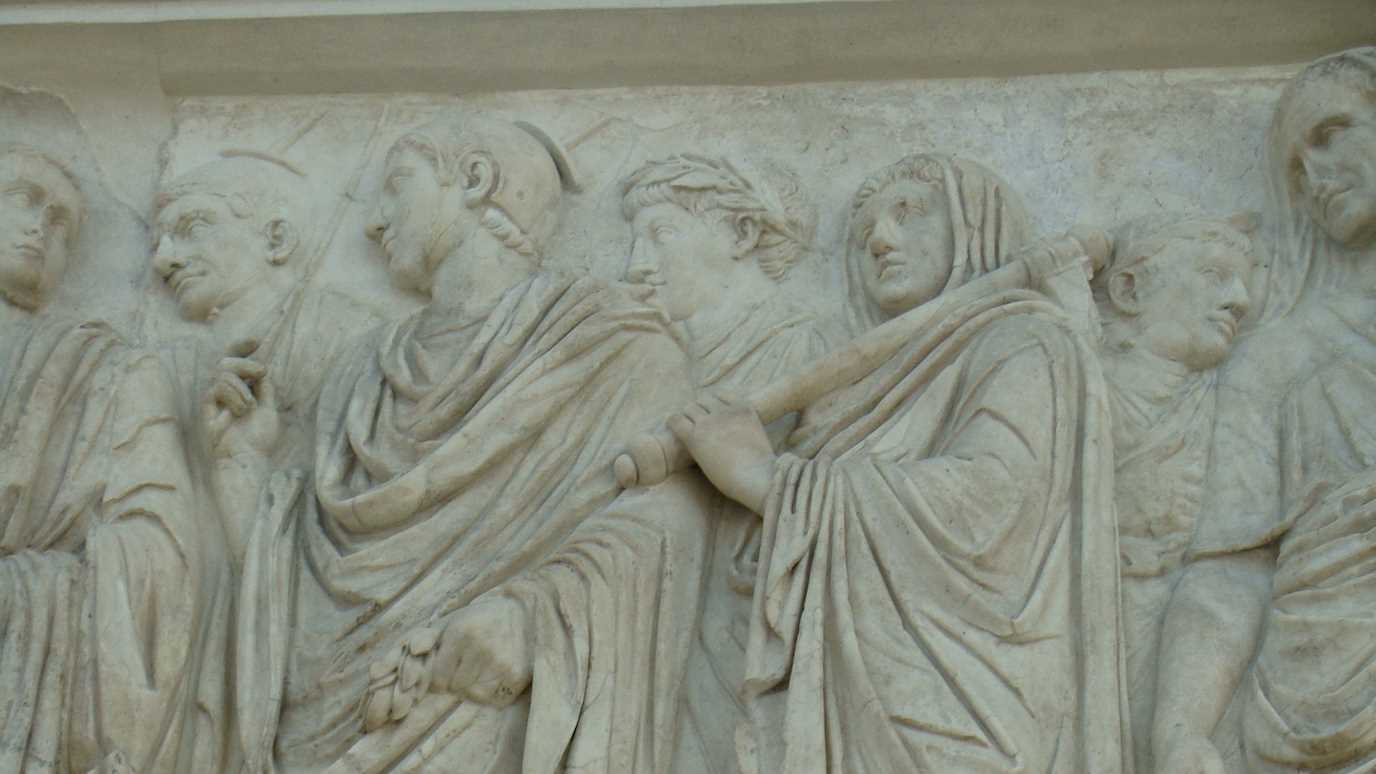The Roman History Forum brings together staff in History and Classics teaching and researching in Roman History. Together, we cover many different approaches to Roman history. Our teaching introduces students to this range of expertise and allows students their own interests and specialisms. Our research ranges from the Republic into late Antiquity and covers themes from gender and the domestic through questions of religion to military and imperial issues.
Prof. Richard Alston
Professor of Roman History
I am a Professor of Roman History in the Classics Department. My interest in Roman history focuses on the interaction between the largest political structures (empires, states) and the individual. I want to know how individuals interacted with these major historical and institutional forces. This approaches influences my teaching from year one to PhD, from the study of the early citizen community in Rome to the transitions to Islam. I am interested in how individuals thought about their societies and politics and how the pressures of those societies shaped individuals. Consequently, and perhaps unusually, I work with modern social and political theory as well as with the ancient material in developing my understandings of the Roman world. My current specialist courses focus on Tacitus and the Making of Empire and Augustus. My current PhD students are working on Roman political history, gender history and Classical reception, and domestic life in Roman Egypt. For more on my research and publications, see here.
Prof. Kate Cooper
Professor of History
I’m a social and cultural historian of late antiquity, the period when the Roman Empire had begun its long decline and the post-Roman kingdoms and empires had begun to take root (roughly AD 100 to 700). My research explores the role of women, children, and adolescents in religious and social change, and the distinctive (and sometimes disturbing) institutions of household and family such as marriage, asceticism, slavery, and domestic violence or exploitation.
Story-telling and memory are at the heart of my teaching and writing. How do we know what we know about the people of the past? What factors led to certain stories being preserved, while others were allowed to lie untold until they were forgotten? This is a key question for the history of women and children, but it is important for all historians.
So one of my keenest interests is in early Christian women, both as the tellers of the ‘viral stories’ of their era – some of which still survive – and as the heroines of many of those stories. The book I’m most proud of, Band of Angels: The Forgotten World of Early Christian Women, assesses what we know about these women, both to establish what we can reasonably say we know about women’s leadership at the end of antiquity and to explore the distinctive role of women as what modern social science might call ‘brand ambassadors’.
Other significant work includes my first book, The Virgin and the Bride (1996), which offered a breakthrough analysis of the changing rhetoric of gender in late antiquity, tracing how and why virginity replaced motherhood as the iconic credential of female moral authority. The second, The Fall of the Roman Household (2007), took up the problem of the Christianization of the family from a more empirical perspective, arguing for the continued importance of the married female householders who had been ‘left behind’ by the rise of the virginal ideal.
When I was growing up in Washington, DC in the 1960s, I was fascinated by the strange world of nineteenth- and twentieth-century Alabama, the world my mother came from. Some of the memories were incredibly painful – indeed, the more painful stories were the ones that lived on in memory the most vividly. It may seem like a remarkable jump from there to early Christianity and the fall of the Roman Empire, but I find that understanding the inner workings of a different place and time is in some ways just as challenging when you are studying a world close to your own as one farther away.
A multi-year research project, The Family in Slavery and Freedom, explores the differing experiences of elite and enslaved women and children and the problem of domestic exploitation in the wider framework of late Roman power relations, drawing on studies of comparatively document-rich slave societies in later periods. (There is surprisingly good evidence, for example, for violence against enslaved women by female owners at this period, which resonates with what we know about the plantations of the Antebellum South.) A recently completed edited collection, Conflict and Social Control in Late Antiquity: The Violence of Small Worlds (jointly edited with Jamie Wood) surveys relations of dominance and exploitation in the small-scale social structures of the late Roman world.
How these small-scale histories are intertwined with the wider history of power, exploitation, and violence is a central interest of my present and future work. A Leverhulme Major Fellowship from 2012-15, The Early Christian Martyr Acts: A New Approach to Ancient Heroes of Resistance, explored the role of martyrdom as a tool of religious change (both in real-life popular resistance movements and in story-telling and memory). A more recent study, ‘Constantine the Populist’ (2019), re-imagines the changing landscape of late Roman political authority at a time when a new form of ‘toxic masculinity’ was on the rise.
More information about my research is available via PURE
Email - Kate Cooper
Twitter - @kateantiquity
Dr. David Gwynn
Reader in Ancient and Late Antique History
Dr David Gwynn
As Reader in Ancient and Late Antique History within the History Department, my role bridges between the traditional spheres of classical antiquity and the early middle ages. My teaching spans from the ancient Greek world to the emergence of Islam, and I have published on topics ranging from the rise and fall of the Roman Republic through to the Goths and their legacy in modern times. My particular research interests lie in the political and religious transformations that shaped the period known as Late Antiquity, including the shifting relationship between the Roman Empire and the Christian Church and the controversies over theology and lifestyle that helped to define Christianity. Those interests are reflected in my undergraduate Special Subject Christians and Pagans from Constantine to Augustine, as well as in the work of my current doctoral students on the Late Roman army during the fall of the western Roman Empire and on pain and punishment in late antique Egypt. More details on my research and publications can be found here.
Dr. Hannah Platts
Senior Lecturer in Ancient History and Archaeology
I am an ancient historian and archaeologist with a focus on the material culture and social history of ancient Rome. I want to explore the factors which impact upon status display and social hierarchies in the Roman domestic space and how dwellings, and the activities that occurred within them, fostered or undermined ideas of community integration and belonging. I teach on a range of Roman history and Roman archaeology courses and my specialist courses include: ‘Grand Designs: Art, Architecture and Power in the Roman World’ and ‘Villa, Domus, Palace: Domestic Space and Social Identity in the Roman World’.
My passion for studying domestic residences and the roles they played in social and cultural history of the Roman world started during my undergraduate degree. It has since developed to consider both the influence and impact of Roman domestic practices on later eras, and to explore the physical and emotional factors which impact lived experiences of the domestic realm across cultures and eras.
My first book Multisensory Living in Ancient Rome: Power and Space in Roman Houses examined the physical experience of daily life and ritual in the Roman house. By looking at diverse sensory experiences, such as sound, smell, touch, taste and sight, I investigate how Roman house owners manipulated bodily experiences within their dwellings in order to display their social standing. As well as exploring how owners demonstrated their power to control the bodily experience of others in within their dwellings, I consider how those of different social status, such as slave, visitor, inhabitant as well as owner, might experience the same house in different ways.
In addition to investigating the lived experience of the domestic realm, in my current book Villas and Values: The Cultural and Competitive Lives of Rome’s Elites (forthcoming Routledge) I explore the luxury villas of mainland Italy and their role in constructing social perceptions of elite self-identity and what it actually was to be ‘elite’ in the Roman world.
My new project seeks to understand the impact of emotional and physical factors upon ideas of domesticity in both antiquity and more recent eras.
As well as exploring the corporeal nature of life in Roman dwellings from literature and archaeological remains, my fascination with multisensory research has led me to examine how digital and immersive technologies can be used to recreate fragile and fragmentary historic sites and artefacts in order to bring to life past eras for today’s audiences and museum visitors outside the academy. From 2016-17 I collaborated on an AHRC project entitled Sensations of Roman Life, where I helped build an immersive virtual reality model of a town house and neighbourhood from Roman Silchester. We used excavation reports to recreate not just the buildings but also the sounds and smells that reflected the archaeological finds of daily life in and around the dwelling. The model allowed visitors to walk around the virtual dwelling whilst smelling the cess pit or the hearth, and hearing the sounds of crackling fires or inhabitants talking. Since this project I have collaborated with numerous museums and heritage sites in the UK, including Historic Royal Palaces, Jorvik Viking Centre and Surrey History Centre in the UK and the Franklin Institute and Colonial Williamsburg in the US to explore the use of immersive and digital technologies in cultural institutions to develop visitor experience and widen participation, accessibility and diversity amongst audiences.
At RHUL I co-direct the Centre for the Study of the Body and Material Culture. I am also Secretary of the Isobel Thornley Fund, University of London.
For Hannah's Departmental Profile, see here.
For Hannah's research profile, see here.
Prof. Boris Rankov
Professor of Ancient History
I am a Professor of Ancient History in the Classics Department. Although I am currently writing a book on the Athenian Navy, my interests on the Roman side are focused on the frontiers of the Roman empire and how they functioned, the Roman army, and various aspects of Latin epigraphy. I have recently published a long article on the possible connection between the elaborate Roman ‘cavalry-sports’ helmets and the masks used by dancers of pantomime, which was one of the most popular forms of theatre in the Roman empire but for which relatively little evidence has hitherto been recognised in the frontier provinces. My previous work has included a book-length study of Roman military intelligence and information-gathering and several articles on the epigraphy of the Roman army, as well books and papers on the reconstruction of both Greek and Roman warships and the archaeology of the sheds in which they were housed. My most recent teaching has been a specialist course on the topography of The City of Rome and my most recent PhD students have worked on the logistics of feeding the Roman army and on Roman religion in the middle Danube region. For more on my research and publications, see here.
Dr. Barbara Zipser
Senior Lecturer in History
Dr Barbara Zipser teaches the history of medicine, science and technology in Classical Antiquity up to the Middle Ages, which includes the Islamic tradition. Her main field of research is medical lexicography and the manuscript transmission of ancient and medieval medicine.
For profile and publications, see here.






















